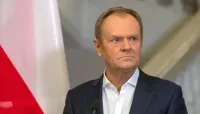Could France’s Rafale sales risk technology leaks to Russia and China?
global.espreso.tv
Mon, 27 Oct 2025 15:19:00 +0200

Defense Express reported the information.The country continues to actively sell its modern 4+ generation Rafale fighter jets abroad, building up a large order portfolio in recent years. However, experts warn that insufficient control over technology transfers could result in sensitive data reaching Moscow or Beijing.This assessment was first shared by columnist Babak Taghvaee in his article for the Middle East Forum. He argues that France’s approach to arms sales “does not always consider the security dimension,” which makes “the risk of technology leaks to Russia and China quite real.”Defense Express emphasizes that such practices reflect France’s long-standing strategy of prioritizing industrial growth and export markets over strict security oversight.One of the examples Taghvaee highlights involves joint military exercises between Qatar and Turkey, where Qatari Rafales were used. These drills, he notes, “allowed the Turkish military to understand the capabilities and limitations of the French-made aircraft and develop potential countermeasures,” particularly relevant for Greece, which also operates Rafales.A similar situation occurred during Qatari-Pakistani exercises, where Rafale jets allegedly participated in flights alongside Pakistani pilots. Although this was officially denied by the French embassy, such interactions reportedly gave Pakistan “additional insight and effectiveness” during encounters with India.The issue becomes even more alarming when looking at the United Arab Emirates. According to Taghvaee, the UAE — whose F-16s face American export restrictions — sent its Mirage 2000-9 fighters to China for training. This exposed advanced Western avionics and radar technologies to one of NATO’s chief adversaries. The Financial Times also reported that in 2022, the UAE allegedly transferred certain technologies to Huawei, possibly including components from MICA air-to-air missiles. If true, this could have helped China enhance its own PL-15 and PL-17 missiles, improving performance even compared to some U.S. systems.Despite these risks, France continues to pursue its Rafale export contracts without introducing stricter re-export or end-use controls. Defense Express notes that “this is almost certainly done to preserve France’s large portfolio of defense contracts, which drives industrial growth.” The outlet adds that “losing even 60 aircraft orders would be a significant blow that might not be offset by new deals.”Historically, France’s flexible export policy is not new. Even during the Cold War, Paris sold weapons to countries unfriendly to NATO — such as Exocet missiles to Argentina — drawing criticism from allies. As Taghvaee recalls, the sale of Mirage F1s to Iraq in the 1980s was also controversial but justified at the time as support against Iran.This “lightness and flexibility,” as the observer calls it, helps France win contracts in markets where the U.S. refuses to sell. Yet, as Defense Express warns, “in a world where information and technology can easily be turned against their creators, France must reconsider the balance between profit and security.”If unchecked, this strategy could one day backfire — with French technology potentially being used against Europe itself in a future confrontation with Russia.








